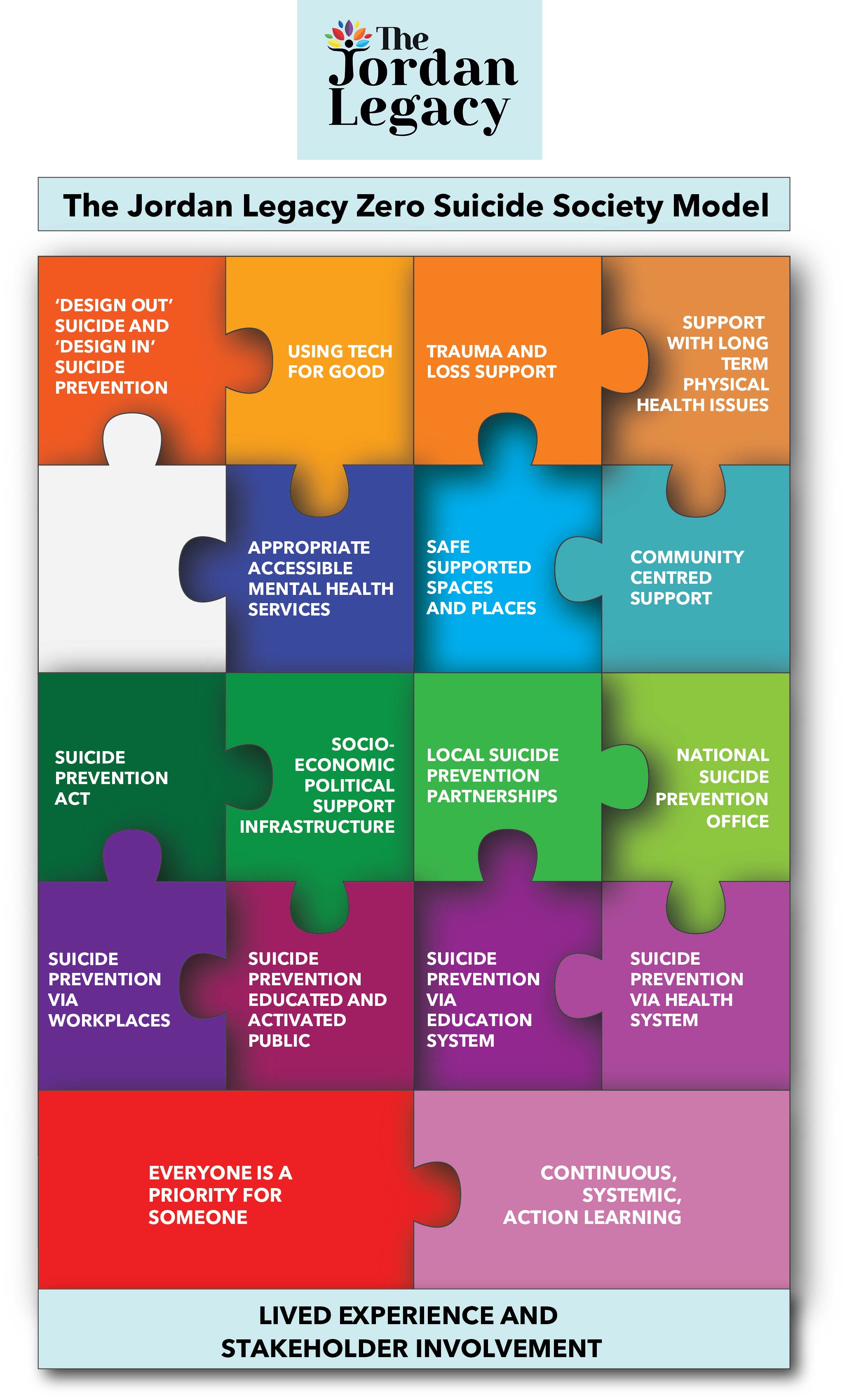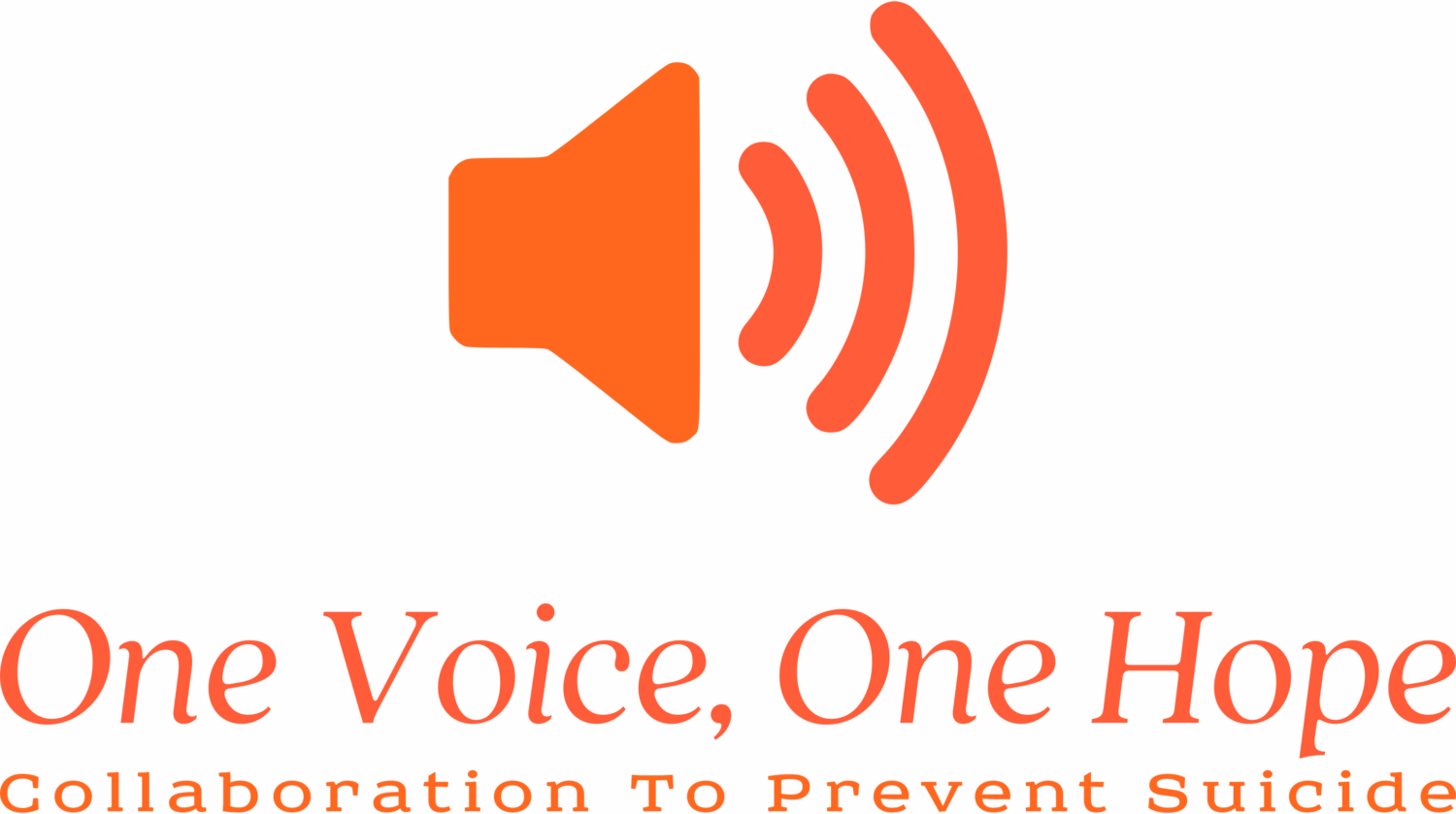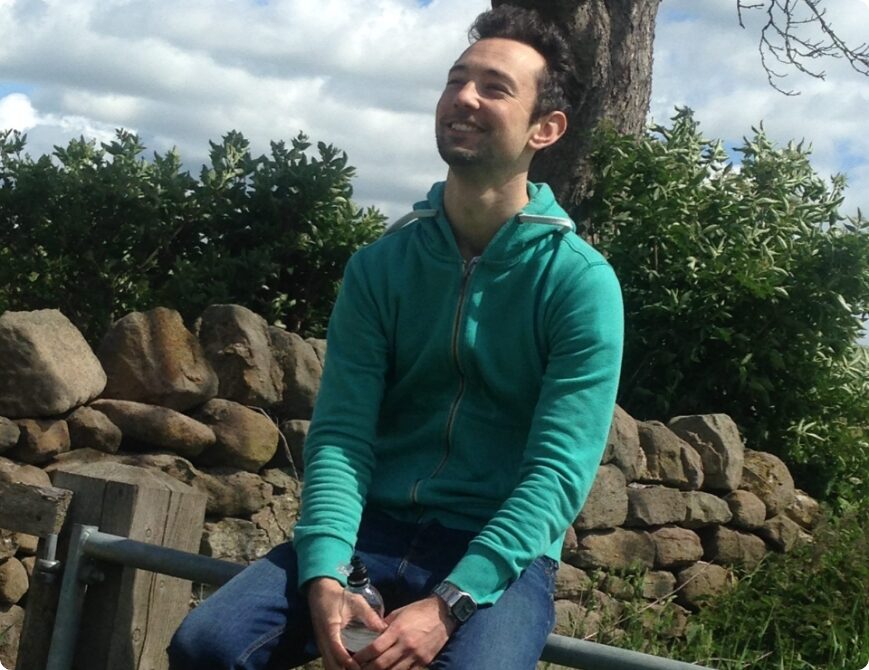Why ‘Zero Suicide’?
Consider this thought; If not Zero, what is an acceptable number of suicides we should accept in our society? Put like this, we believe that there is only one goal we should be continually striving towards; a 'Zero Suicide Society'.
If Our Mission is to move towards a Zero Suicide Society, what does this mean in a practical sense and how do we achieve this? After all, the UK has experienced no significant reduction in suicide deaths for the past 16 years!
Research suggests that most suicides are preventable so we must surely be willing to do all we can to prevent all those that are preventable.
The Research
The Jordan Legacy CIC was founded in August 2020. For the next 2 years, we continued to raise awareness about the lack of progress being made in reducing the 7000+ deaths by suicide every year in the UK, becoming a recognised influencer in this space.
Then, in January 2023, together with our then collaborative partner, Paul Vittles from Towards Zero Suicide CIC, we undertook several months of research to better understand what are the practical actions required to get the suicide numbers moving on a downward trend towards zero.
The interviews
We interviewed dozens of individuals and organisations, who shared our values and ambition, including heads of national charities, mental health and suicide crisis team leads, campaigners and consultants and those, in particular, who had lived or living experience of suicide – these were some of our most informative conversations.
There were 2 key questions, in particular, which we wanted to understand: “Do you believe we can significantly reduce the 6000+ deaths by suicide which happen each year in the UK?”
If the answer to the first question was ‘Yes’, then our next question was; “How far do you think we can go?”
The answers
On July 11th 2023, on what would have been Jordan’s 38th birthday, we shared the answers to the 2 main questions and more in depth conversations, in what several suicide prevention leads described as a ‘Ground-breaking report’. The report, titled, “Moving Towards a Zero Suicide Society”, maps how we get the numbers of suicides on a downward trend, towards zero. The findings from our report can be found on this page of our website.
View this shorter summary of the reports key points, including “10 Big Ideas for a Zero Suicide Society”:
 Loading...
Loading...
The main report is 84 pages long, so we asked ourselves a question; how do we represent the findings in a simple, visual format? The answer came in the form of a jigsaw puzzle – a number of pieces, each representing an area of society where actions to prevent suicide can be effected.

Showcasing the report
In June of 2024, the report was showcased by a physical tour from the Humber to the Mersey in what was known as the #ZeroSuicideSociety #JoinTheDotsTour, led by Paul Vittles and Towards Zero Suicide Society. The tour began with a launch conference in Scunthorpe, North Lincolnshire on June 12th and visited several locations across the ‘M62 Corridor’ before the climax on Hope Street in Liverpool on June 23rd.
The tour was an opportunity to bring together many who have been impacted by suicide and who share our mission to move towards a ‘Zero Suicide Society’ – it was about joining the dots together. For a summary of the #JoinTheDotsTour, please visit this page on our website.
Implementation and continuous action learning
Publishing reports and holding awareness raising tours is one thing, actually implementing the practical actions required to get the numbers of suicides on a downward trend, towards zero requires collaborative action to be undertaken.
What next for The Jordan Legacy?
The report, ‘Moving Towards a Zero Suicide Society‘ maps out what needs to happen to ensure we are able to prevent all preventable suicides. From summer 2024, The Jordan Legacy has been facilitating the development of a new initiatives:
‘One Voice, One Hope’ is a proposed national network to facilitate greater collaboration amongst those who share our mission. More information about this initiative, including a recording of a live webinar, with more than 300 registered attendees can be viewed via this link.
Meanwhile….
The Jordan Legacy will continue to:
- Facilitate our online educational panel events to discuss and share practical solutions to prevent suicides
- Deliver talks to encourage schools, workplaces and community groups to introduce practical suicide prevention activities and policies – book talks here.
- Forge partnerships with Police forces, professional firms and other charitable projects to consult and support their wellbeing and suicide prevention strategies
- Hold our bi-annual Hope for Life (UK) Conference and awards event in Harrogate, North Yorkshire – to inspire and bring hope to those who attend this event
- Ensure that our website, e-newsletter bulletins and social media platforms continue to provide the latest and most relevant news and update you on our progress towards our Mission. To receive our monthly e-bulletins you can opt-in here.
- Update the Help and Support resources section of our website to signpost anyone who needs help to services which are most appropriate for them.
Where does the term ‘Zero Suicide’ originate from?
2000 was a global turning point in suicide prevention when Ed Coffey and his team at the Henry Ford Health System in Detroit made the bold step to aim for ‘zero suicides’ and ‘perfect healthcare’.
The Henry Ford Health System was the first to pioneer and conceptualize “zero suicides” as a goal in 2001. Since then, it’s grown to become an international call-to-action for healthcare providers that seeks to create a new culture and care pathway around suicide prevention.
Ed and his team were inspired by success in reducing traffic fatalities, and also by the quality assurance systems that had delivered systemic change in many fields since post-war Japan.
They decided to apply this philosophy of ‘aim for zero’ and develop an effective Continuous Systemic Action Learning system in Detroit, and this was introduced in 2001.
Within 4 years, the Henry Ford Health System had reduced the number of suicides within their healthcare system by 80%. In 2009, they had their first year of having no suicide deaths at all.
Clearly there is much more to this story. This short video will hopefully help to provide mor context.
One Voice, One Hope
Information about One Voice, One Hope (OVOH) is being hosted by The Jordan Legacy until a standalone website is launched during Q1 2026.
The vision for OVOH is bold but simple: to ignite a movement that will help bring down the number of lives lost to suicide in the UK in a way that truly shifts the tide.

Zero Suicides in the Community
Suicide can affect anyone but everyone can help prevent suicides.
For this part of our strategy, our actions are aimed at benefitting communities, including; schools, colleges and universities, local businesses, non-professional and professional sports clubs and teams, local chambers of commerce and business groups and associations, local charities and support groups, local NHS and mental health teams, suicide prevention leads, charities and other third sector organisations and groups by sharing relevant information, advice, awareness-raising, education, and support to help create communities where suicide prevention is more openly discussed and deaths by suicide become increasingly rare events.

Zero Suicides in Schools and Education Centres
Statistics published by the young person’s charity, Papyrus, show that approximately 200 school children and in a separate study, 100 university students die by suicide every year in the UK.
With an average of 135 people, known to the young victim, impacted by each suicide, in total that’s 40,500 people who are impacted by these suicides, every single year.
Zero Suicides in the Workplace
Most of us will spend a third of our lives at work, so it’s important that workplaces are psychologically safe environments, where mental health and employee wellbeing are seen as core business issues.
Most people who take their lives each year are employed. In a supportive workplace environment, the involvement of leaders, managers and all employees is an important component in suicide prevention.

Jordan’s Place – a centre for hope
Our actions are specifically aimed at benefitting the general public and those more directly impacted by mental health challenges and suicide, by providing relevant information, advice, awareness-raising, education, and support to help move the UK to a society where suicide prevention is more openly discussed and deaths by suicide are rare events.
We aim to continually promote the public benefits of advancing mental health and suicide prevention approaches; developing, collating and sharing ‘what works’ with the general public and those groups, organisations, institutions and individuals who are able to help save lives.


